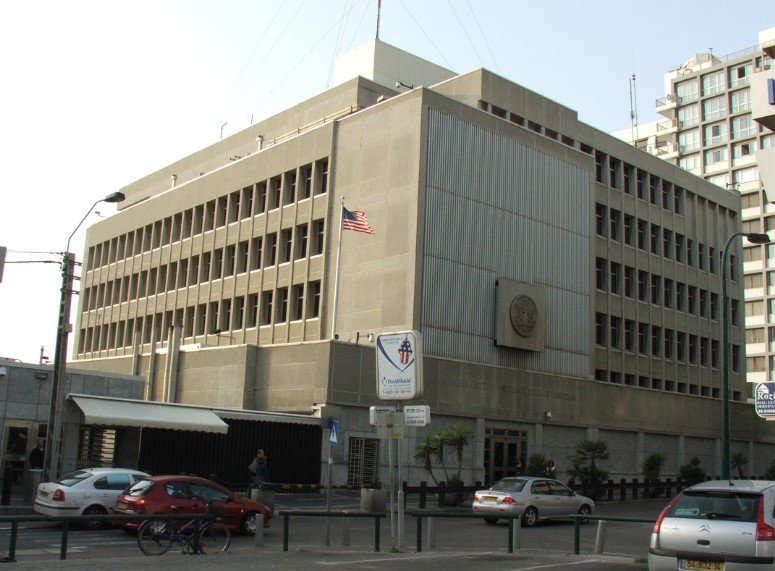A 28-year-old Colorado-born man has been charged with trying to bomb a U.S. Embassy branch in Tel Aviv, officials confirmed Monday. Joseph Neumeyer, a U.S.-German dual citizen, allegedly planned to set the embassy on fire using Molotov cocktails.
His arrest and deportation from Israel to the U.S. on May 19 follows a disturbing series of threats posted on social media, including calls to burn down the embassy and violent rhetoric against America.
Shocking Social Media Threats Spark Investigation
It’s almost surreal how fast a Facebook post can spiral into an international security incident. Neumeyer’s chilling messages on May 19 shocked authorities and citizens alike. He openly invited people to join him in setting fire to the embassy, proclaiming, “Death to America, death to Americans, and f— the west.” Pretty heavy stuff.
Even more disturbing were his alleged threats aimed at then-President Donald Trump. The man behind the screen wasn’t just venting — this was a clear warning. The digital footprint he left behind painted a vivid picture of intent that law enforcement couldn’t ignore.
By that afternoon, Neumeyer was reportedly caught near the embassy branch in Tel Aviv. According to court documents, he wore a dark backpack, spat at a security guard, cursed, and then fled when confronted — leaving behind his bag. The contents? Three homemade Molotov cocktails filled with ethanol, ready to ignite.

The Arrest and Legal Fallout
Neumeyer didn’t stay on the run for long. Israeli authorities nabbed him swiftly and, after processing, deported him to the U.S. where federal charges quickly followed. The timing was tight, and the international cooperation between U.S. and Israeli law enforcement showed how seriously such threats are taken.
What’s a little murky, though, is the background of the suspect. Born in Colorado, Neumeyer holds dual citizenship but had lived stateside until this year. Exactly where in Colorado he’s from remains unclear, as do details about his life here before heading abroad. His motives? Officially, those are still under investigation, but the public posts give a dark hint.
A Look at Embassy Security Concerns in the Region
Embassies are hot targets in volatile regions, and Israel’s U.S. Embassy is no exception. This isn’t the first time it’s faced threats, and certainly won’t be the last. After all, Tel Aviv remains a hotspot where geopolitical tensions frequently spill over into the streets.
Since the Houthi missile strike on Israel’s main airport earlier this month, many international carriers suspended flights to and from the region. That same uncertainty has also put diplomatic missions on high alert. Security protocols have been beefed up, but as this incident shows, the risk remains.
-
Embassies often use multi-layered security: physical barriers, high-tech surveillance, and armed guards.
-
Yet, lone actors or small groups sometimes find ways to test those defenses.
-
The presence of Molotov cocktails suggests a rudimentary but dangerous tactic that can cause serious damage.
What This Means for U.S. Security and Public Perception
This episode hits home on a few levels. First, the fact that the suspect was born in the U.S. adds a layer of complexity to the story. It’s a reminder that threats don’t always come from abroad—they can come from within. People with dual citizenship or those radicalized domestically may pose real dangers.
It also shakes public confidence. When you hear about someone openly declaring violent intentions on Facebook, then showing up near an embassy with incendiary devices, it makes you wonder about the gaps in monitoring and prevention.
And let’s not forget the role of social media here. Platforms often serve as the stage for threats and extremist rhetoric. But what’s the line between free speech and danger? How quickly should authorities step in? It’s a tricky balance with real lives at stake.
Finally, the quick deportation and charges show the legal systems’ readiness to respond. But questions linger: What led Neumeyer down this path? What about his connections, if any? And will this case spur changes in how embassy security and threat intelligence are handled?
